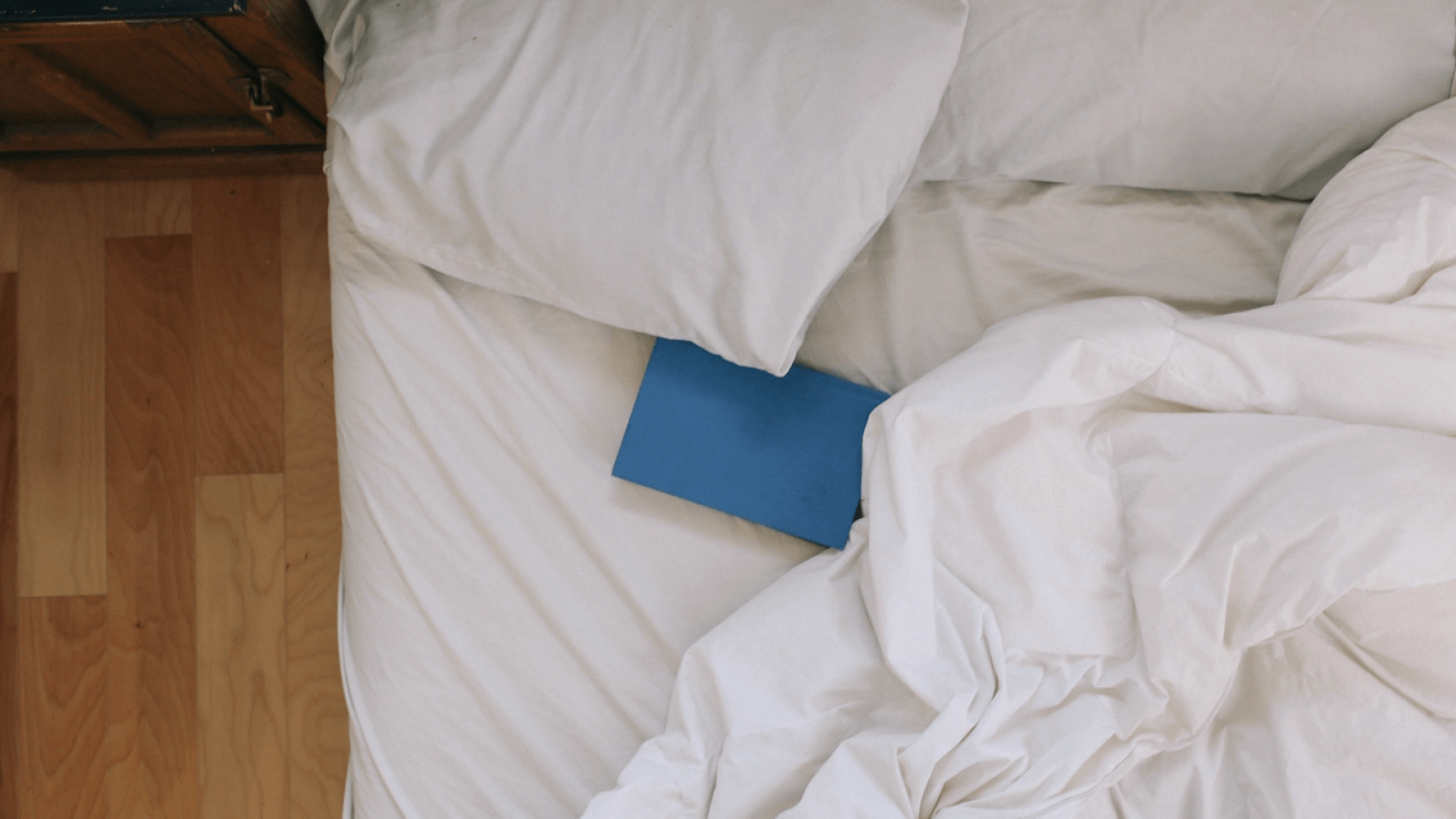Key takeways
Excessive sweating affects 3-8% of Lexapro users and is dose-dependent, occurring more frequently at higher doses.
Night sweats may persist during treatment but can also appear as a withdrawal symptom when discontinuing Lexapro.
Understanding the difference between medication side effects and withdrawal symptoms helps guide appropriate management strategies.
Night sweats and excessive sweating are well-documented side effects of Lexapro (escitalopram), affecting thousands of people who take this commonly prescribed SSRI antidepressant. Clinical trial data reveals that sweating occurs in 3-8% of Lexapro users, with the incidence increasing at higher doses. For many, this side effect can be disruptive to sleep quality and daily comfort, leading to important questions about duration, management, and when to seek medical guidance.
Understanding why Lexapro causes sweating, how long it typically lasts, and what can be done to manage this side effect empowers individuals to make informed decisions about their treatment. This comprehensive guide explores the mechanisms behind Lexapro-induced sweating, its prevalence, timeline, and practical management strategies.
What Causes Lexapro Night Sweats?
Understanding SSRI-Related Sweating
Lexapro belongs to a class of medications called selective serotonin reuptake inhibitors (SSRIs). These medications affect neurotransmitter systems in the brain, particularly serotonin, which plays a role in regulating various bodily functions including temperature control and sweating responses.
The sweating experienced with Lexapro appears to be related to how the medication influences the autonomic nervous system, which controls involuntary bodily functions. This effect on temperature regulation can manifest as increased sweating during the day or night, often without an obvious external cause like physical activity or warm temperatures.
It's important to distinguish normal medication-related sweating from serotonin syndrome, a potentially life-threatening condition that can occur with SSRI use. Serotonin syndrome includes sweating alongside other serious symptoms such as high fever, rapid heart rate, muscle rigidity, confusion, and agitation. This condition requires immediate medical attention.
The Dose-Response Connection
Clinical trial data from Lexapro studies demonstrates a clear relationship between dose and sweating incidence. In major depressive disorder trials, increased sweating occurred in approximately 3% of patients taking 10mg daily compared to 8% of those taking 20mg daily. For generalized anxiety disorder, the rates were 4% at therapeutic doses compared to less than 1% with placebo.
This dose-dependent pattern suggests that individuals experiencing bothersome sweating might benefit from discussing dose optimization with their healthcare provider, though any medication adjustments should always be made under medical supervision.
How Common Are Lexapro Night Sweats?
Excessive sweating ranks among the more common side effects reported in Lexapro clinical trials. In studies of major depressive disorder, "sweating increased" affected 5% of Lexapro users compared to 2% of those taking placebo. The side effect appears consistently across different conditions treated with Lexapro, including generalized anxiety disorder.
Research examining patient-reported side effects found that profuse sweating was among the most frequently reported adverse effects for SSRIs overall, alongside dry mouth, sexual dysfunction, and weight gain. In one Netherlands study of over 1,000 patients, profuse sweating was reported by approximately 20% of SSRI users during a 1-2 year follow-up period.
The sweating tends to be most noticeable during sleep, when the body's natural temperature regulation processes are already active. Many people report waking up with damp clothing or bedding, even in cool environments.
Duration and Timeline: Do Lexapro Night Sweats Go Away?
During Treatment
For individuals experiencing sweating as a side effect during active Lexapro treatment, the duration can be highly variable. Some people notice the side effect diminishes as their body adjusts to the medication over several weeks or months. However, research suggests that certain side effects, including sweating, may persist throughout the duration of treatment for some individuals.
A naturalistic study examining adverse effects over time found that the risk of side effects actually increased with each year of antidepressant use, suggesting that adaptation doesn't occur for everyone. This highlights the importance of ongoing communication with healthcare providers about persistent or bothersome side effects.
During Withdrawal
Sweating can also appear as part of SSRI withdrawal syndrome when discontinuing Lexapro. In withdrawal contexts, sweating is listed among the common physical symptoms that can occur alongside flu-like symptoms, dizziness, fatigue, and other manifestations of the discontinuation syndrome.
It's crucial to understand that antidepressant withdrawal is highly personalized. While some people may experience mild symptoms lasting only days or weeks, others can experience prolonged symptoms that persist for months or even years. Several factors can increase the risk of severe and prolonged withdrawal symptoms, including the duration of treatment, dose, individual brain chemistry, and the speed of discontinuation.
The timeline and severity of withdrawal-related sweating cannot be predicted based solely on the medication's half-life. Even after Lexapro has cleared from the body, the brain changes caused by chronic use may take significantly longer to reverse, potentially contributing to ongoing symptoms during the adaptation period.
Distinguishing Between Side Effects and Withdrawal
Medication-Related Sweating
Sweating that occurs as a direct side effect of Lexapro typically develops within the first few weeks of starting treatment or increasing the dose. This type of sweating often occurs predictably, may be more pronounced at certain times of day, and tends to correlate with peak medication levels in the system.
Medication-related sweating usually occurs alongside other common Lexapro side effects such as nausea, dizziness, fatigue, or sleep disturbances. The sweating may be generalized or more pronounced in specific areas like the hands, feet, or underarms.
Withdrawal-Related Sweating
When sweating occurs as part of SSRI withdrawal syndrome, it typically appears within days to weeks of dose reduction or discontinuation. Withdrawal-related sweating is often accompanied by a constellation of other symptoms that can include:
- Dizziness and light-headedness
- Flu-like symptoms
- Fatigue and malaise
- Sleep disturbances
- Mood changes including irritability and anxiety
- Cognitive symptoms like difficulty concentrating
- Physical symptoms such as headaches or muscle aches
The combination and timing of these symptoms can help differentiate withdrawal effects from a return of the underlying condition that led to Lexapro treatment initially. Withdrawal symptoms typically have a quicker onset (days rather than weeks) and may respond rapidly to reintroduction of the medication.
Managing Lexapro Night Sweats
Practical Strategies
Several environmental and behavioral modifications can help manage night sweats related to Lexapro use:
Sleep Environment Optimization:
- Keep the bedroom temperature cooler than usual (65-68°F)
- Use breathable, moisture-wicking bedding materials
- Consider a fan for air circulation
- Choose lightweight, natural fiber sleepwear
Timing Considerations:
- Discuss with your healthcare provider whether taking Lexapro at a different time of day might help
- Some people find morning dosing reduces nighttime sweating
Lifestyle Modifications:
- Avoid caffeine, alcohol, and spicy foods in the evening
- Stay hydrated throughout the day
- Practice stress reduction techniques, as anxiety can exacerbate sweating
When to Consult Healthcare Providers
Certain situations warrant prompt medical consultation:
- Sweating accompanied by fever, rapid heart rate, muscle stiffness, or confusion (potential serotonin syndrome)
- Sweating that significantly disrupts sleep or daily functioning
- New or worsening sweating that develops after being stable on medication
- Any concerns about medication effectiveness or side effect burden
Healthcare providers can evaluate whether dose adjustment, timing changes, or alternative medications might be appropriate. It's important never to stop Lexapro abruptly, as this can precipitate withdrawal symptoms and potentially dangerous rebound effects.
The Bigger Picture: Understanding Antidepressant Effects
Modern research has expanded our understanding of how antidepressants affect the brain and body. Rather than simply "correcting a chemical imbalance," these medications appear to work through complex mechanisms that can include both therapeutic effects and side effects like sweating.
The brain undergoes significant adaptations during antidepressant treatment, with changes occurring at receptor sites and in neurotransmitter systems. These neuroadaptations help explain why side effects can persist during treatment and why withdrawal symptoms can occur when discontinuing medication.
It's worth noting that research shows the majority of people naturally recover from depression within a year, including those with severe symptoms, according to population studies. This context can be helpful when weighing the benefits and risks of continued medication use, especially when side effects like persistent sweating impact quality of life.
Conclusion
Lexapro night sweats represent a common but manageable side effect that affects 3-8% of users in a dose-dependent manner. Understanding whether sweating is related to ongoing medication effects or withdrawal symptoms helps guide appropriate management strategies. While some individuals may see improvement over time, others may experience persistent sweating throughout treatment.
The key to managing Lexapro-related sweating lies in open communication with healthcare providers, practical environmental modifications, and careful attention to the broader context of treatment benefits and risks. For those considering medication changes, gradual tapering under medical supervision is essential to minimize withdrawal symptoms and ensure safety.
Considering Coming Off Lexapro? Outro Can Help
If you're experiencing persistent side effects like night sweats and considering tapering off Lexapro, Outro provides evidence-based resources and support for making informed decisions about antidepressant use. Our platform offers comprehensive information about medication effects, withdrawal management, and alternative approaches to mental health care.
Visit Outro to access personalized guidance and connect with healthcare providers experienced in careful medication management and tapering protocols.
Want to explore tapering?
Book a free discovery call with the Outro team.
The information provided on this page is for educational and informational purposes only and is not intended as medical advice. It should not be used to diagnose, treat, cure, or prevent any medical condition. Always seek the guidance of a qualified healthcare professional with any questions you may have regarding your health, medical condition, or treatment. Never disregard professional medical advice or delay in seeking it because of something you have read here. If you are experiencing a medical emergency, please call 911 (or your local emergency number) immediately.
Escitalopram (Lexapro) prescribing information. (2017). U.S. Food and Drug Administration. Reference ID: 4036381.
Cartwright, C., Gibson, K., Read, J., Cowan, O., & Dehar, T. (2016). Long-term antidepressant use: Patient perspectives of benefits and adverse effects. Patient Preference and Adherence, 10, 1401-1407.
Hengartner, M. P., Schulthess, L., Sorensen, A., & Framer, A. (2020). Protracted withdrawal syndrome after stopping antidepressants: A descriptive quantitative analysis of consumer narratives from a large internet forum. Therapeutic Advances in Psychopharmacology, 10, 1-16.
Horowitz, M. A., & Taylor, D. (2019). Tapering of SSRI treatment to mitigate withdrawal symptoms. The Lancet Psychiatry, 6(6), 538-546.
Horowitz, M. A., Wilcock, M., Freudenstein, O., et al. (2024). The discriminatory antidepressant withdrawal symptom scale (DAWSS): Development and validation. Journal of Psychopharmacology, 38(3), 229-238.
The Maudsley Deprescribing Guidelines. (2023). Safe deprescribing of antidepressants. Chapter 2: Comprehensive clinical assessment and management principles.
.png)




